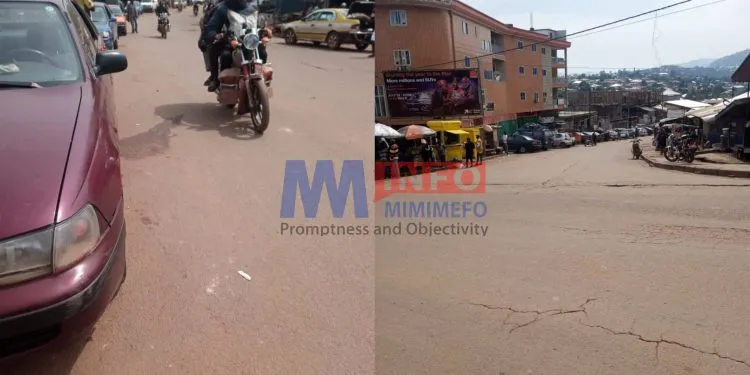The city of Bamenda awoke on Thursday, April 18, 2024, amidst confusion as a separatists’ lockdown was enforced within the Mezam division. While some parts of Bamenda disregarded the call for a ghost town, adherence was observed in other areas, resulting in subdued business activities.
Ayaba Cho Lucas, the leader of the Ambazonia Governing Council, a separatist faction engaged in an armed struggle to establish a state in Anglophone Cameroon, spearheaded the lockdown in Bamenda on Thursday. A statement disseminated by supporters on social media declared that the lockdown aimed to neutralize threats against their armed militants.
“Our aim is to enforce a lockdown in Mezam on Thursday, April 18, 2024. This measure is intended to eliminate threats posed to our forces and civilians and to commemorate the sacrifices of fallen Ambazonian soldiers since January 2024,” the message proclaimed.
Lockdowns have been utilised as a strategic weapon against the central government by separatists advocating for the creation of a new state known as Ambazonia in the Anglophone regions of Cameroon since the onset of the Anglophone crisis.
Criticism from the local populace has mounted against the recurrent imposition of lockdowns, viewing them as more detrimental to them than to the targets claimed by the separatists.
“The constant lockdowns are tiresome. It’s unclear whether they are directed at us, the ordinary citizens, or against the government,” remarked a resident who preferred to be identified only as Isabel.
Interestingly, government officials from Yaounde frequently visit Bamenda without encountering any resistance from the armed separatists.
“Throughout this crisis, we’ve witnessed ministers and other high-ranking officials from Yaounde coming and going without any incidents,” observed Isabel. “Sometimes, no lockdown is declared, allowing them safe passage in and out of Bamenda. This makes us believe that these lockdowns are aimed at us rather than the government.”
Recently, Cameroon’s army chief of staff, René Claude Meka, visited Bamenda for a security assessment meeting. The separatists remained subdued during his presence but promptly reinstated the lockdown afterward.
The purported lockdown on Thursday coincided with the arrival of Celestine Ketcha Courtes, the Minister of Housing and Urban Development, in town. While government affairs proceed uninterrupted, civilians find themselves at the mercy of the fighters who resort to intimidation to enforce their directives.
Another resident lamented the disruption caused by the lockdown, recounting how his travel plans to Douala were thwarted as transport services were suspended until the following day.
“I purchased my ticket in the morning and was assured of a 3 pm departure, only to be informed later that the agency would resume operations the next day,” he recounted. “The business I intended to conduct in Douala has incurred significant losses.”
Lockdowns were initially initiated by the Anglophone Civil Society Consortium in the early stages of the Anglophone crisis in 2017. However, armed separatists have since adopted it as a primary tactic in their struggle, which appears to adversely affect the local population more than the Central government they purport to oppose.



